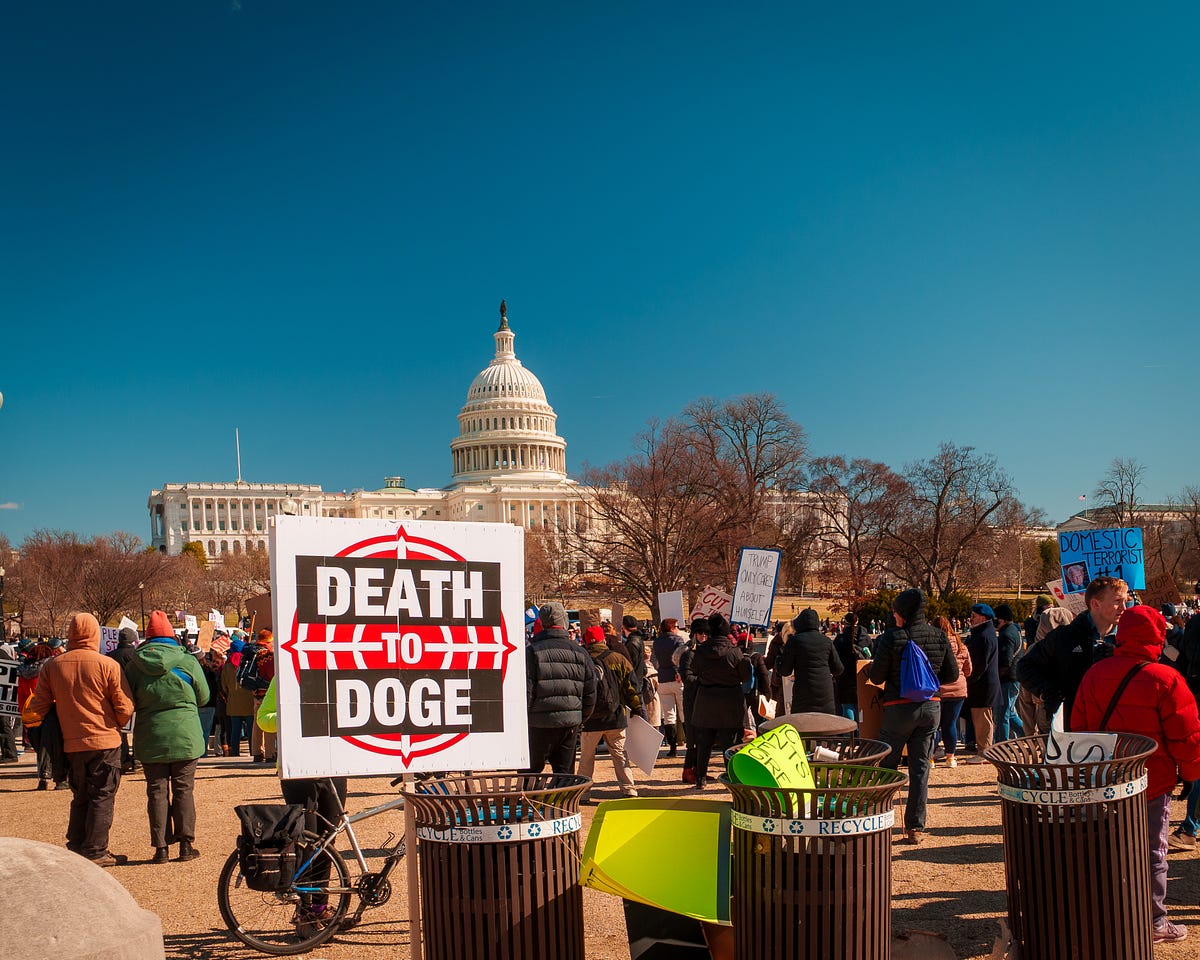What has DOGE accomplished?

“Beyond the Ballot” is a column presented and created by the PHHS Politics Club. This column will explore electoral information, congressional controversies, and senatorial stories! Stay tuned for biweekly updates from your brand-new news source.
What is DOGE? It’s been popular in the news as of late, and sometimes it’s not clear what this new department is actually doing. In this article, we will break down the operations of DOGE, potential problems, and its lasting impact.
DOGE, which stands for the Department of Government Efficiency, is a governmental department enshrined by Donald Trump to cut down on government spending. This was done in an effort to break down, quote-on-quote, “government waste” in a multitude of different government ventures. From cutting down on building leases with no use to consolidating overlapping programs into one, DOGE promises to break down administrative issues present in the government.
Thus far, the department has managed to “save” at least 150 billion dollars in government spending. Under the stewardship of the controversial Elon Musk, DOGE has made several strides to undermine the preexisting bureaucracy as well as eliminate some key opponents of the Trump administration. Due to either genuine issues or simple grudges, the entrenched interests of the Department of Education (ED) and agencies like the Agency for International Development (USAID) have seen cuts to their funding.
Government departments aren’t the only things being attacked, however. Many different government ventures, like grants and other funding projects, are being scrutinized by the recipients for their quality. This includes universities like Harvard or UPenn, which have been threatened with losing government funding for research if they continue to have certain policies.
Cutting isn’t the only thing that DOGE is concerned with. Of course, cutting down on the bureaucratic system is one way of increasing efficiency. Creating new systems and reallocating funds is just another one of the things that DOGE is doing at the status quo. With the creation of online systems for permits and overriding restrictive regulations, efficiency has gone up in multiple sectors of the government.
However, not everything is as rosy as it seems. DOGE has also cut out a lot of federal jobs or those deemed “inefficient” in the federal government. This started with a controversial scheme where Musk sent an email to millions of federal workers asking about what they did that past week and using that (in addition to more metrics) to cut out workers. As expected, this led to the loss of thousands of jobs across the nation, as certain departments saw over half of their workers being eliminated. This echoes the previous actions of Musk in his business venture of purchasing Twitter, now X, where Musk eliminated a majority of the previous workers for so-called inefficiency.
There has also been a great amount of controversy surrounding the operations of the new department. For starters, at the head of the department is Elon Musk, a famous tech icon, who has been stated to have a conflict of interest with the goals of his private companies. Whether it be granting contracts to Starlink, his space internet company, or deregulating restrictions on electric vehicles for Tesla, there are a lot of ways his own interests may shine through.
In addition, the very constitutionality of the existence of a non-elected department like DOGE doing as much as it is is questionable. DOGE has been granted extraordinary power when it comes to security clearance or even its methods of “cutting down” on the government. Finally, the operations of DOGE have been criticized for their function in cutting down the power of political dissenters and using funding to change the ways that other departments go about things. Additionally, the destruction of some key agencies and departments has seen Trump opponents go down with them in protest. Clearly, not everything is ‘sunshine and rainbows’ when it comes to cleaning up the government.
However, hope should not be lost, as there is a lot to be gained from the very existence of an auditing body in the government. For starters, auditing and confirming the usefulness of military-industrial spending would be a great way to cut down. Of course, many vested interests would rather not see that happening, but the very talk of such an event is productive. Next, the money recuperated from cutting down can be spent to repay the national debt. Now topping over 30 trillion, the national debt seems insurmountable, and DOGE is one way to start paying it back.
Yet, there are still serious questions about the political limitations of the success of DOGE. Trump came into office promising a good economy, or at least a better one than his predecessor, Joe Biden. A massive part of this was the promised DOGE. However, while cuts are definitely good, there’s no telling how this will benefit the average American citizen. While it can be calculated that each citizen has technically “saved” somewhere in the ballpark of about 1,000 dollars, this isn’t being paid back via rebates or such. Instead, it is simply money taken out of the system but not reinvested.
Of course, this fits in line with classical republicanism, which is more about a small government. Whether this sort of idealistic policy will actually lead to the betterment of the finances of the people, time will tell.
BBRecapTM:
Thus, the effects of DOGE are numerous in both the positive and negative aspects. On one hand, DOGE has incredible promise when it comes to its unparalleled power to change the finances of America and eliminate that which is useless. On the other hand, it’s not clear whether or not DOGE is constitutional or whether or not it will actually help the people. While Trump promised a better economy, he didn’t promise payments to the people, as that’s against traditional conservative economics. It’s not politically smart to continue this instability, considering the tariffs and the turbulent economy. What DOGE and the Trump administration do next will define not only their term but the next age. So, we can only hope that they choose to do the right thing.





